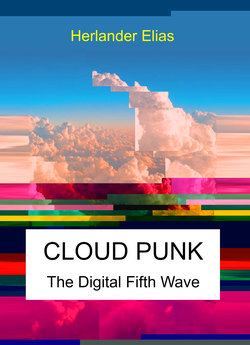Читать книгу Cloud Punk - Herlander Elias - Страница 3
На сайте Литреса книга снята с продажи.
Preface
ОглавлениеIt could even be a fiction book
It is a common thing fictional literary works which portray a dystopic future. Imaginary narrative is embraced by an uncomfortable restlessness when somebody tries to predict our machines and technology relation. This kind of future is unknown and there is a comprehensive fear. The future past narratives tried to anticipate what would be the present we experiment nowadays. Just for a moment, look around and you soon will realize that Skynet does not win, we are not source of energy to the machines, replicants do not kill humans, people need not to be genetically manipulated before born to be considered capable and we do not drive cars through desert-cities looking for gasoline. These are old visions of a future that does not belong to us. On the contrary, we live together with concepts as metaverse, data-telling, cloudware, cyberwar, blockchain, hyper-information and hierarchies’ fragmentation which provide an heterarchy culture of production and the diffusion of contents which is typical of a rhizomatic means. These are some of nowadays particularities. This is the reality we live in.
Notwithstanding, Cloud Punk: The Digital Fifth Wave, tells about our present.
In this work there is a deep reflection on the contemporaneity of a digital society, telematic, interconnected, hybrid, and one which produces and consumes a quantity of data unimaginable for the previous generation. We live in informative bubbles. Our online actions are watched. We give our consent, in a frightened pacific form, to be sold to big cloud companies. What is to be noticed in this work is the fact we live a process of memories, works, economy and consumer goods dematerialization and also of everything that can be scanned. In other words, the quality of the physical things is not a prerequisite for an object existence. What would be the physical existence of a work? The words I write here are equally true on a printed book or in an electronic book. The same movie exists in the theaters or in on-demand platforms. The object is not only independent from its materiality but it is also independent from its locality. The cloud is ubiquitous.
Our present is invisible to the most of the eyes. However, there are people who can see through the transparency of the immateriality. Differently from those who can consider this work as an example of a fiction with a near future flavor, there are others who notice the presence of a paradigmatic rupture of our way of existing and resisting in this world. To adapt and to transform: so it is and so it will be.
In this work, Herlander Elias reveals to us that he has a mind which walks in a lucid way by the threads of digital contemporaneity. He is a cyberthinker who can, with nimbleness, be away of the common places of discourses on technology. The author gifts us with an intelligent and intriguing thinking which certifies a serene capacity of detachment which turns the present we live holds flavors of a near future. He is, in fact, a person with attentive eyes to our time. Because he does not think only by himself, he thinks profusely and reaches multiple areas and disciplines.
It is noticeable that our post-digital society is not a theoretical concept anymore. During the reading, the author turns possible to us more than a conceptual comprehension; he makes us recognize the presence of this immaterial reality which crosses over our lives. He crosses over our humanity. He transforms us in post-humans who live in another habitat, with new biotechnological extensions. To accede this new habitat, nowadays extremely occupied by yotabytes of information created by us, is possible by machine intermediation only. The language of this new habitat, created by us, is perceptible by machine intermediation alone. We are creating a new universe, which cannot be experienced by tact, smell, or taste. Our human belief in heaven eternal life, in the clouds, has been turned in reality. The difference is that the place now is called cloud and our memories, in binary data way, will be there while there is energy to keep them there.
Nothing else is offered here besides present’s reality. This is fascinating.
By Flávio Almeida – PhD and lecturer at Universidade Da Beira Interior and IADE — Universidade Europeia. English version by Sandra Isoldi.
